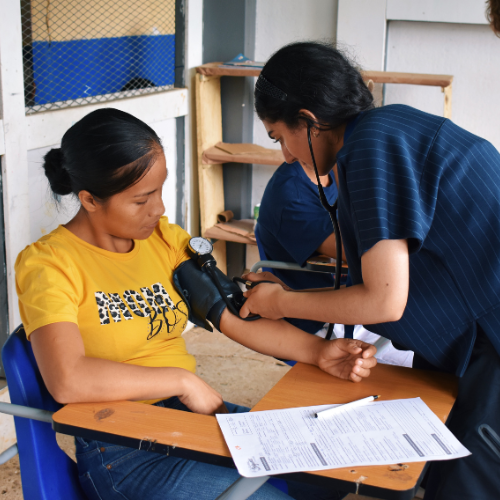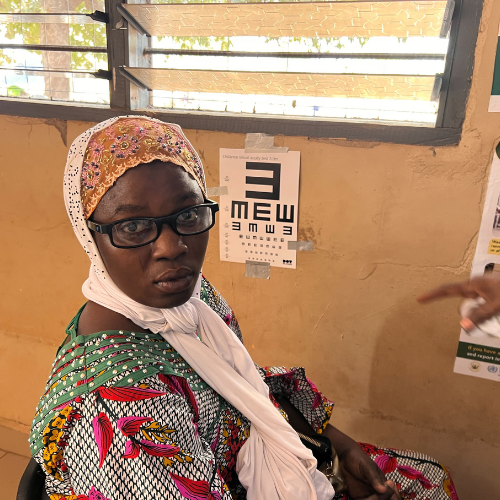At Global Brigades, sustainability means partnering with communities. For us, empowerment, transparency, and collaboration are more than just words on our website. We weave our values into program methodology and data-driven decisions to make a lasting, measurable difference.
We know that to increase access to healthcare, establish sustainable water and public health infrastructure, and execute economic development, a collaborative approach to growth is crucial to our success in achieving this audacious goal, and why we are dedicating this blog to your thoughtful questions with earnestness.
The Global Brigades Model in Action
Question 1: Why short-term volunteer programs?
Global Medical Brigades began 20 years ago with one week and one group of volunteers. Our first trip laid the foundation for more schools to start their Brigades on their campuses, and that would provide resources to hire our first part-time local employees in Honduras. Within a few years, we grew to hundreds of schools, thousands of annual volunteers, and hundreds of staff from the countries we worked in to build sustainable development initiatives year-round. “One group of volunteers in one week” are the spokes in a wheel that create year-round sustainable impact.
Ongoing partnerships provide scalable impact that leads to sustainable communities!
We run week-long volunteering trips to make it accessible for our volunteers to participate. At GMB we want to affect as many hearts and minds as possible—helping students understand the complexity of their volunteer work. Our model has resulted in our ability to mobilize more volunteers abroad than even the Peace Corps in some years; exposing thousands of students to an opportunity who would not have otherwise been able to go to another country and make an impact.
.jpg?width=4032&height=3024&name=IMG_6722%20(1).jpg)
Question 2: Are these short-term trips considered voluntourism?
Volunteers on Brigades participate in thoughtfully constructed agendas that directly contribute to GMBs and the communities we partner with long-term goals. Each Brigade serves as a critical step in the larger vision for a community’s health and economic development goals and our overall vision to improve livelihoods for generations to come.
A Brigade is purpose-driven volunteering. It's directly tied to long-term community goals. It’s a hands-on opportunity to gain experience in sustainable development and make a tangible impact within our partner communities.
In 20 years, Global Medical Brigades has:
- Provided 1.5 million patient consultations, bringing essential healthcare access to under-resourced communities.
- Constructed 80+ clean water systems, giving 60,000+ people reliable access to clean water.
- Mobilized 84K+ volunteers, pairing real-world medical experience with sustainable community impact.
-
Built trusted partnerships with 829 rural communities, working hand-in-hand to achieve lasting change.
These achievements are just the beginning. The next 20 years start now! And we need you to help write that story. Will you join us and empower the next generation of sustainable change?
Question 3: How are Brigades different from a “Mission Trip?”
Global Brigades, while purely secular, recognizes that our volunteers come from different religious, political, and socio-economic backgrounds. It is not uncommon for volunteers to be on a Brigade that encompasses a spectrum of religious and/or political views. What makes our Brigades special is the collaborative work achieved by this diverse group of people. We believe there is something beautiful in that! And at the highest level, it is what our world needs to preserve and perpetuate peace as we work together to execute sustainable development.

Final Thoughts
We are committed to transparency in everything we do, ensuring lasting sustainability for the communities we partner with so they have the power to thrive.
For 20 years, Global Medical Brigades has shown how one week, one team, and one vision can ignite lasting impact. Now it’s your turn. Lead a Chapter or join a Brigade and help us empower the next million people toward healthier, more sustainable futures.
Updated 2025

.jpg)




-1.png)